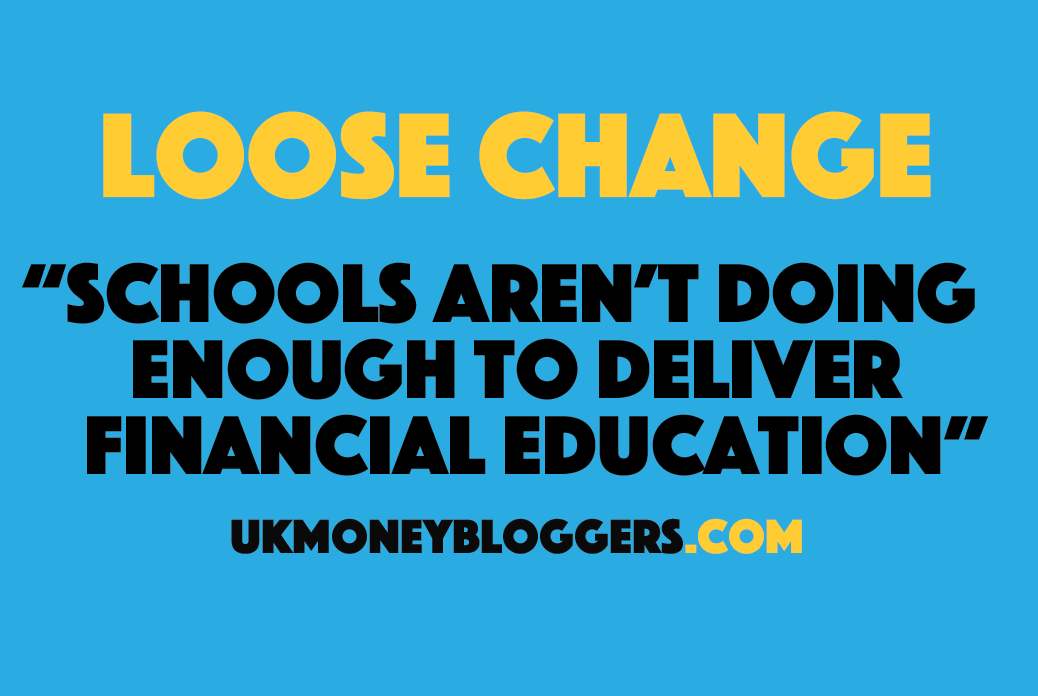Loose Change is a series of blogposts by members of the UK Money Blogger community where they let loose on a financial issue important to them.
This week’s post is from Charlotte who runs the blog Looking After Your Pennies.
A survey conducted by the Money Advice Service said that 72% of schools want to increase their provision of financial education. With less than 60% claiming that they have the skills to deliver this important subject, are secondary schools doing enough to ready their students to live in the financial world?
I spent 10 years working in a large secondary school as a maths teacher. During that time, I took on various roles, including a stint as STEM (Science, Technology, Engineering and Maths) coordinator, where I was gifted a cross-curricular look at the content being served up in schools.
What I discovered, I found rather worrying.
What do schools legally have to provide?
In 2014, financial education was embedded in the National Curriculum. Many who fought for this hoped that this would lead to an increase in teaching in this area.
Unfortunately, many schools do not have to follow the national curriculum. This includes free schools, academies and independent schools. They are only required to provide a broad and balanced curriculum, but there are no guidelines on what this includes.
Unlike English and maths, financial education is not a compulsory exam subject. It was placed in the citizenship and maths syllabus with the hope that the two subjects could cover the content between them.
The reality of financial education in schools
My first-hand experience tells me that there is much more that needs to be done. As a maths teacher with a love of personal finance I enjoyed teaching this topic in my lessons.
But when I questioned students of their knowledge on the subject already (normally aged 14+), there were huge gaps. Few knew the difference between a credit or debit card. Many could calculate compound interest but did not understand the power of it.
The mathematics syllabus will include problems involving money, such as calculating percentage increase/decrease or “best value” problems. But many of these are abstract or even redundant in a society of smartphone calculators.
Budgeting problems are practised in citizenship lessons but are typically simplified. Using examples that are suited to their age, such as saving pocket money each week to buy festival tickets.
What needs to change?
Exposure to real life examples is key. Students need to see the services that banks are offering, learn the differences between savings accounts and understand the associated jargon.
Resources that are designed to develop skills in these areas have a place. Students need to build these up over time. However, we are doing our children a disservice if we let them enter the world of financial accountability without a corresponding vocabulary and decent prior exposure.
We need to fight for training for our teachers, who themselves maybe lacking in financial knowledge and skills. We need to see financial skills, terminology and real-life examples on GCSE specifications.
Only under these conditions will finance education be given time in the school day and be delivered to an appropriate standard.
How will we benefit from this change?
Our children will be released into adulthood with an understanding of personal finance that many of us have spent most of our adult lives learning.
We may be able to prevent them from getting into high levels of debt, encourage them to hold savings and provide them with the confidence to start investing at a young age.
Articles in the Loose Change series are written by members of our community. The views do not necessarily represent those of UK Money Bloggers or other members.


One thought on “Are secondary schools doing enough to deliver financial education?”
I received no financial education when at school, or at home, so I was clueless when I turned into an adult. I didn’t even know how much food cost in a supermarket! I want to teach my children about finances to try and make sure they don’t get into the crazy debt I did as a young adult. I definitely think it should be a compulsory subject at school too.